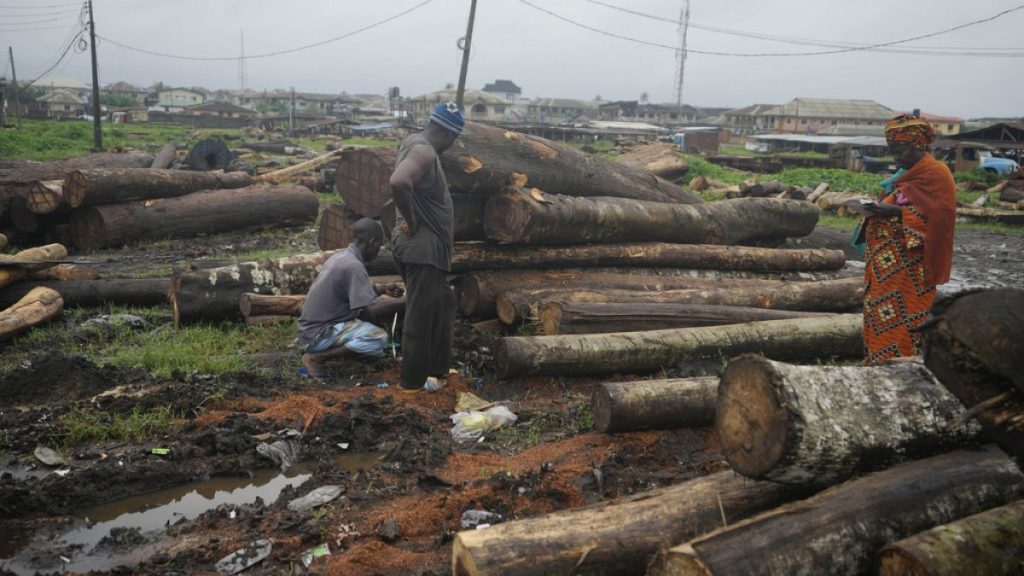Summarize this content to 2000 words in 6 paragraphs
The centre-right European People’s Party is claiming credit for a one-year delay to a regulation blocking EU market access for products linked to deforestation, although it failed in its attempt to further water down the law despite support from the far-right.
The EU Deforestation Regulation will not take effect until the end of 2025, giving companies an extra year before having to certify their goods are not linked to forest clearance further up the supply chain, following an agreement between the European Parliament and national governments on Tuesday night.The back room agreement between the MEPs and EU Council delegates came just two months after the European Commission caved in to pressure from trading partners, business lobbies and right-wing political groups in Brussels, having failed to publish guidelines on how to implement the law.The EU executive proposed on 2 October a targeted amendment to the law, adopted in May 2023, affecting only the date due diligence requirements take effect.“This is a victory, championed by the EPP Group,” German MEP and lead parliamentary negotiator on the file Christine Schneider said after the provisional agreement was struck.“We successfully postponed the implementation of the Deforestation Law by one year, giving European businesses, foresters, and farmers the planning security they need while protecting them from excessive bureaucracy,” Schneider said.However, the EPP failed to secure further changes beyond a delay to the date firms start certifying their products are deforestation free – 30 December 2025, six months later for SMEs – with the EU Council refusing to countenance further changes to the law.With support from the conservative ECR, nationalist Patriots and extreme-right ESN groups and the majority of liberal Renew Europe lawmakers, Schneider had been pushing for the creation of a ‘no risk’ category for countries that would be exempt from most of the requirements of the regulation.In the end, the right-wing had to settle for an undertaking from the Commission to finalise the country risk benchmarking and online information system no later than six months before the application of the regulation, with an update to guidelines and Q&A documents.The EU executive will also explore the possibility of reducing the administrative burden for countries who have demonstrated good forest management as part of a general review due by mid-2028. Green groups, who had bitterly opposed the delay to a key green deal agenda item of president Ursula von der Leyen’s first European Commission.“It is a relief that the fundamental elements of the most progressive EU law to fight deforestation remain unchanged,” said Anke Schulmeister-Oldenhove, a forests specialist at the WWF European Policy Office. “However, delaying its application by a year is already a step backward, allowing deforestation to continue unabated,” she added.“Member states have stood firm, rejecting the harmful amendments which would have gutted the law and left it impotent,” said Nicole Polsterer, a campaigner with the forest protection group Fern, adding: “In the face of unremitting pressure from the European People’s Party to dismantle the law, EU member states were united in upholding its integrity.”Some sectors of the business world welcomed the delay, notably those allied to Europe’s domestic forestry industry, with Swedish Forest Industries Federation director Viveka Beckeman calling it a “much-needed pause to address remaining uncertainties”.The Confederation of European Paper Industries said the delay would allow for more effective implementation, while stressing that “practical issues” such as the transition period for timber products and SMEs would need to be clarified in the review of the guidelines.The deforestation regulation requires firms importing or exporting from the EU to exercise due diligence and prove their supply chains are deforestation free for a range of goods commonly linked to forest clearance: palm oil, cattle, soy, coffee, cocoa, timber and rubber, as well as derivatives such a beef, furniture, or chocolate.Following the political agreement last night, the amended deadline requires a rubber stamp from the EU Council and Parliament to pass into law
Keep Reading
Subscribe to Updates
Get the latest creative news from FooBar about art, design and business.
© 2025 Globe Timeline. All Rights Reserved.


